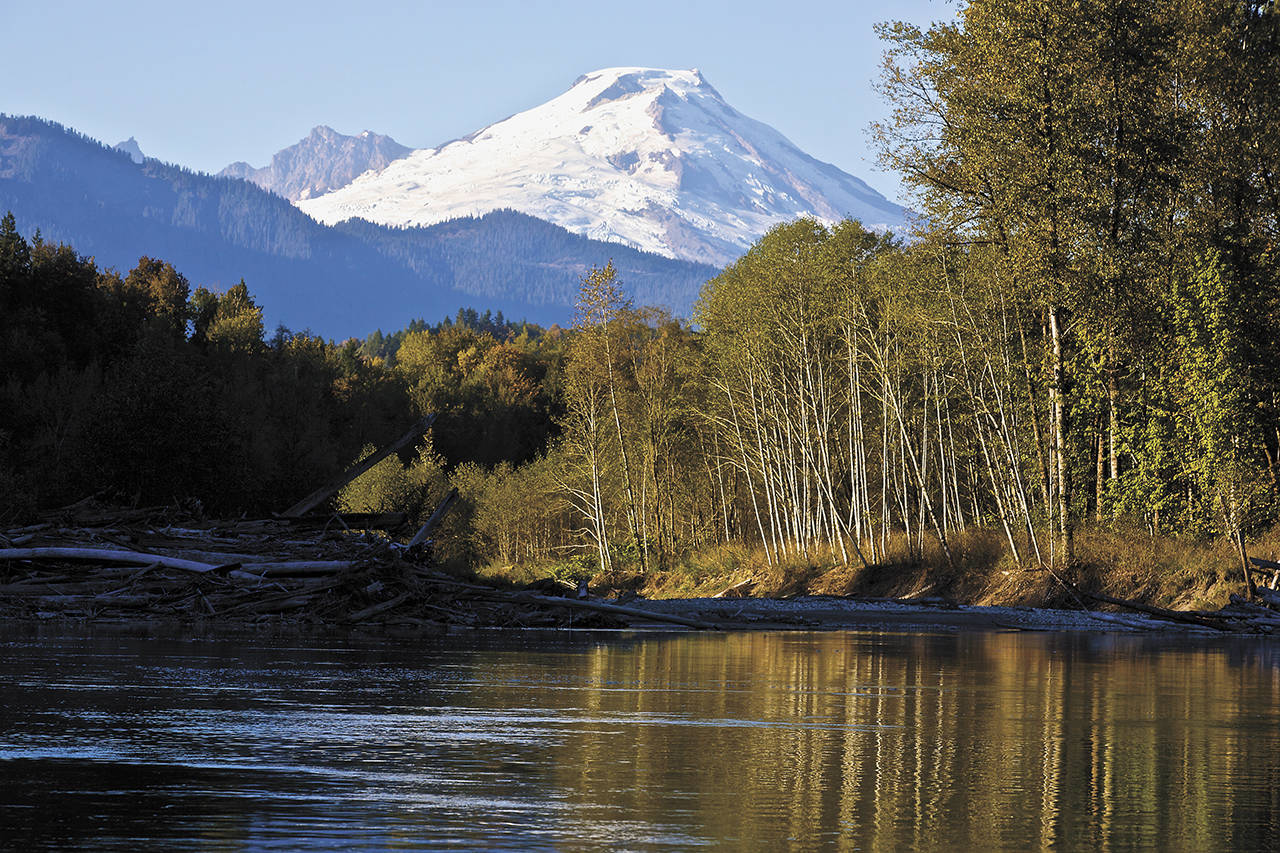By The Herald Editorial Board
It’s easy to forget that a river’s watershed pays no attention to borders; other than the crests of mountain ranges.
The rain and snowmelt that finds their way into the Snohomish River arrive from watersheds in both Snohomish and King counties. Likewise, eastern Snohomish County’s Sauk and Suiattle rivers reach north into Skagit County where they join the Skagit River, also fed by headwaters that extend through Whatcom County into British Columbia.
What happens in a watershed’s farthest reaches can affect the health of the river downstream, its wildlife and the communities that depend on the river for fisheries, agriculture, tourism and more.
A proposal, then, to allow a Canadian mining company to begin a five-year program of test mines for gold and copper in British Columbia, north of Ross Lake in Washington state’s North Cascades, has drawn opposition on both sides of the border from tribes, environmental groups and elected officials, including Gov. Jay Inslee, and nine members of the state’s congressional delegation, including Sens. Maria Cantwell and Patty Murray, and Reps. Suzan DelBene and Rick Larsen, whose districts include Skagit River communities. The nine members of Congress wrote Secretary of State Mike Pompeo last month, asking him to intervene with British Columbian and Canadian officials to stop the proposal.
We’re not talking sourdough miners panning steambeds for flakes of gold.
Imperial Metals has proposed setting up test drill sites within an area of public — but unprotected — land that, because it is surrounded by two B.C. provincial parks, is called the “donut hole.” The test operations would require clearing and the construction of small tailings ponds. Successful tests could lead to expanded mining operations and an even greater threat.
The donut hole’s snowpack directly feeds the Skagit River’s headwaters.
And — for an industry that at its best has a worrisome record regarding environmental protections — Imperial Metal’s is further stained by the 2014 Mount Polley mine disaster, in which a tailings reservoir’s dam failed at the Mount Polley mine in central B.C., releasing 31 million cubic yards of wastewater and mining waste into the region’s lakes and rivers. A 2016 report by the provincial government of the dam’s failure found several lapses in compliance and enforcement of mining regulations. And the area hardest hit by floodwaters had yet to recover as of 2017, the CBC reported.
The concern is highest for any copper mining that might be allowed. Along with other heavy metals, dissolved copper released into the river would be toxic to salmon.
Such an operation would be an unacceptable threat for any river, but is especially so for the Skagit, designated by Congress in 1978 as one of the United State’s first Wild and Scenic Rivers.
The North Cascades Institute considers the Skagit the most biologically important watershed in the Puget Sound region. It supports chinook and four other native salmon species, steelhead, cutthroat trout and the endangered bull trout. The river’s fish also feed one of the largest wintering migrations of bald eagles in the Lower 48, numbering 600 to 800 of the raptors each year.
The river supports the Skagit Valley’s agriculture, commercial and recreational fishing and about 20 percent of Seattle’s electrical energy from Seattle City Light’s Ross, Diablo and Gorge dams.
In fact, an agreement between the British Columbia government and Seattle City Light provides the strongest framework on which the mining proposal can justly be rejected.
In the mid-1980s, Seattle proposed increasing the height of Ross Dam to generate more electricity, which would have raised the level of Ross Lake in both Washington and B.C. Environmentalists fought the proposal, and Seattle dropped its plans in exchange for hydropower from B.C. As part of the agreement, a joint council of B.C. and Seattle representatives, the Skagit Environmental Endowment Commission, was created, in part to advise government agencies on conservation and protection of the watershed. The deal and the commission were made official in a treaty signed by the U.S. and Canada.
The SEEC already has been successful in blocking further timber harvests in the “donut hole” that had been earlier approved by the provincial government. The SEEC, reports The Seattle Times, now is asking British Columbia to buy back the donut hole’s mining rights so that the land can have the same protection as the provincial parks that surround it.
Added persuasion from the U.S. State Department — in the interests of protecting its own treaty rights — would help persuade Canadian and British Columbian officials to assure protection of the Skagit.
Talk to us
> Give us your news tips.
> Send us a letter to the editor.
> More Herald contact information.

























